10 of the most egregious examples of queerbaiting on TV
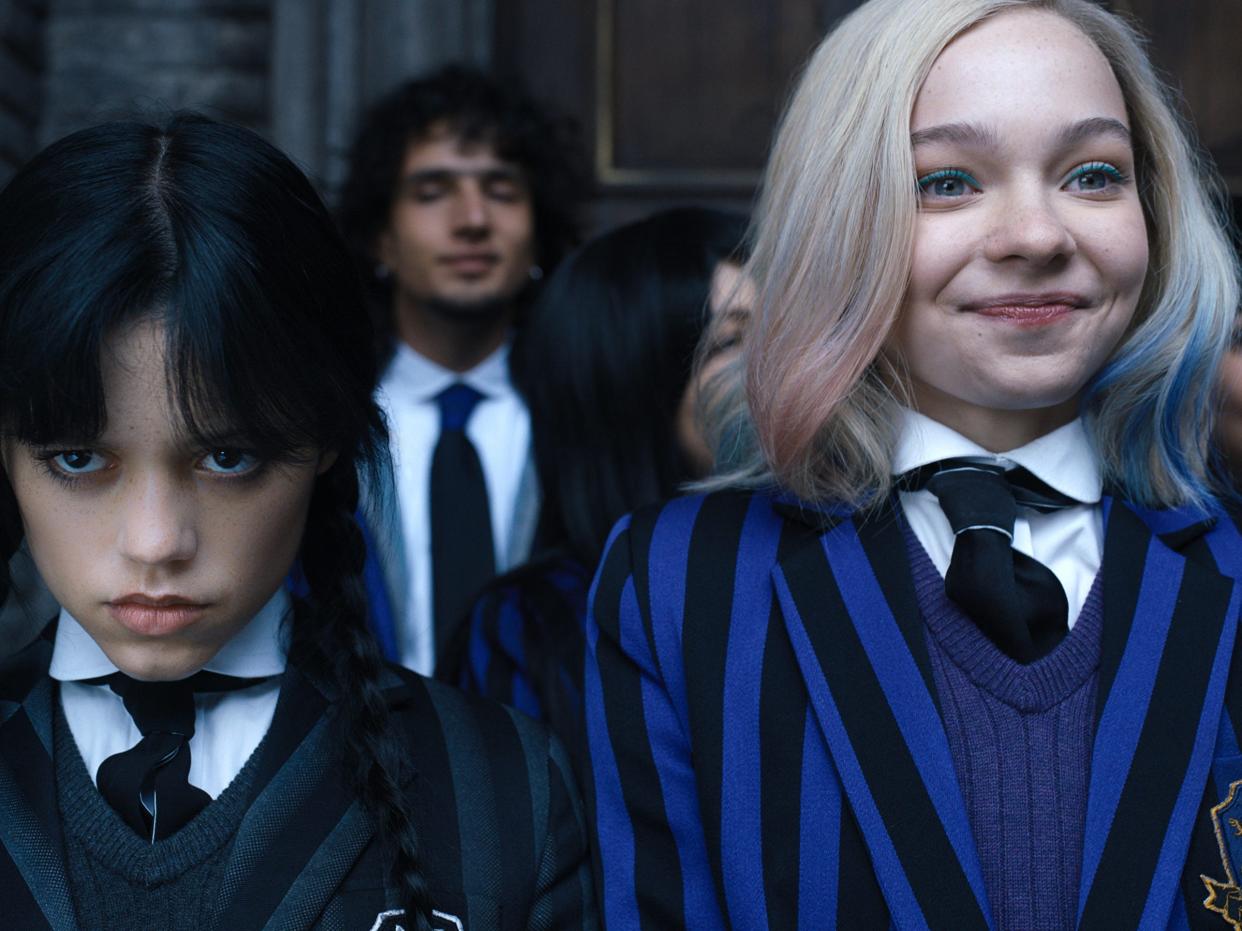
Queer representation has continued to grow on TV in recent years.
But even now, fans argue that networks use queer tropes to market shows without following through.
It took "Supernatural" over 10 years to confirm a character was gay ... and then he died.
Queerbaiting is a complex thing to define in 2024. Oxford Languages defines it as "the incorporation of apparently gay characters or same-sex relationship into a film, television show, etc. as a means of appealing to gay and bisexual audiences while maintaining ambiguity about the characters' sexuality."
In other words, it's when a show is marketed to queer audiences through the promotion of an LGBTQ+ relationship, known colloquially as a "ship," without actually making the relationship canon.
Last year, for example, Netflix threw a Pride party for its show "Wednesday" titled "WednesGay." But neither Wednesday nor any of her friends were confirmed to be queer on the show, even though Wednesday certainly had chemistry with her roommate, Enid.
For some shows, it's not as clear cut, but that hasn't stopped fans from accusing writers or networks of failing to follow through on the promise of a queer relationship.
Here are 10 shows that have been accused of queerbaiting by fans.
One pre-death confession didn't erase 12 years of queerbaiting for "Supernatural" fans.
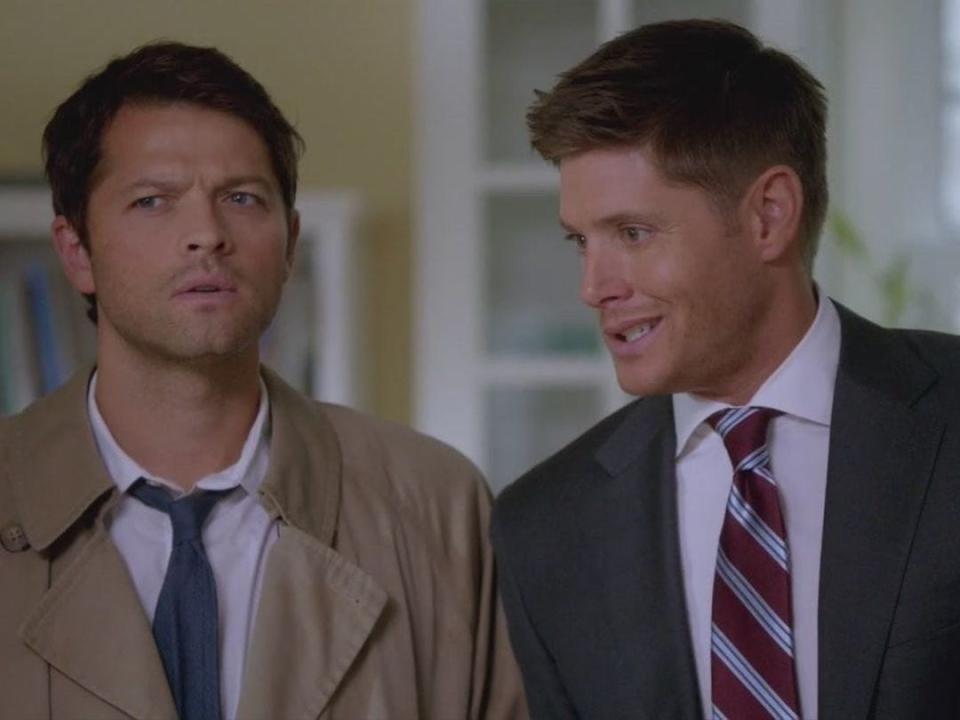
"Supernatural" aired for 15 years on The CW, from 2005 to 2020. The show primarily focused on a pair of demon-hunting brothers, Sam and Dean Winchester.
As Business Insider's Kat Tenbarge pointed out in 2020, the supernatural soap's queer fandom "kept it alive," but the show never actually followed through on one of its most popular ships: Destiel.
Destiel, a portmanteau of Dean and Castiel (an angel), was heavily hinted at throughout the series and was one of the most popular ships on Tumblr.
"The queerbaiting just got ridiculous," former "Supernatural" fan Evan Tess Murray told BI in 2020. "You couldn't pretend they weren't doing it on purpose anymore. It wasn't 'Well, there's some subtext.' It was like 'Oh my god, this is never going to pay off and you're doing it to keep me here.'"
After years of criticism from outlets like TV Guide and The Advocate, "Supernatural" finally made Destiel canon … sort of.
With three episodes to go before the series finale, Castiel confessed his love for Dean — though it wasn't made explicitly clear if it was romantic or platonic love — and then he died. Then, as meme-makers loved to point out, he was basically sent to "super hell."
Netflix received criticism for how it promoted the show "Wednesday" by using queer tropes ... even though Wednesday and Enid were both in straight relationships.
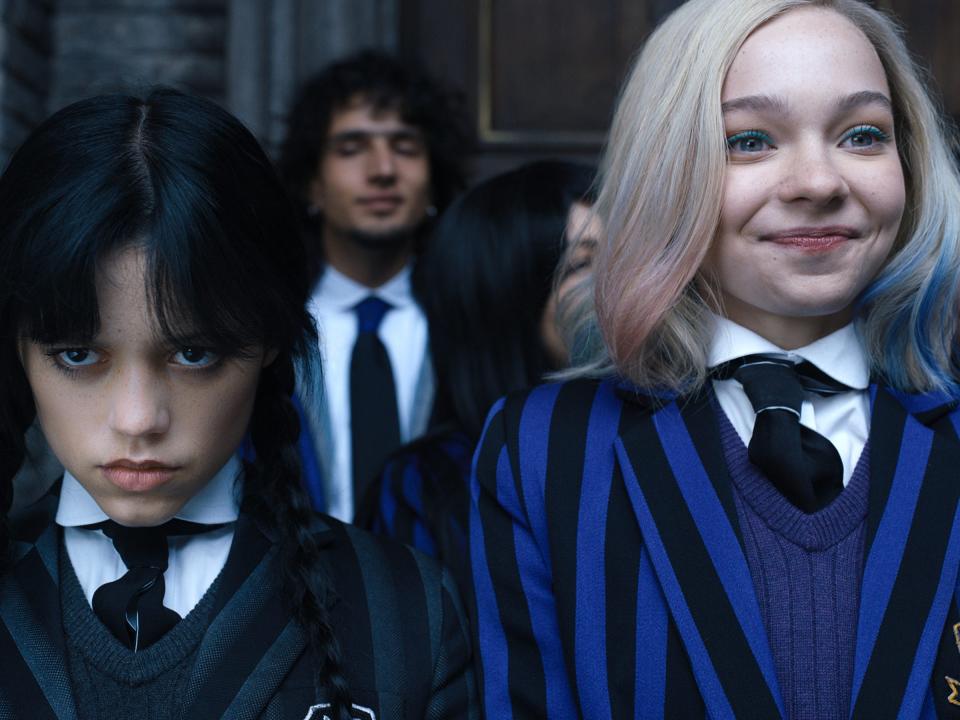
"Wednesday" is a Netflix series focused on Wednesday Addams, the deadpan goth teenage daughter from "The Addams Family." As Digital Spy pointed out, Wednesday (and the rest of the Addams family) have been read as queer icons, as their alternative lifestyles usually distanced them from the rest of the world.
Netflix was apparently aware of this reading and even threw a "WednesGay" party targeted toward LGBTQ+ viewers and featured drag queens and other queer performers, Them reported.
But once the show premiered and it became clear Wednesday was going to be involved in a love triangle with two boys, and Enid also had a male love interest, some viewers saw the event as pandering.
As Discussing Film pointed out on X, "Netflix has queerbaited fans and made them believe Wednesday and Enid would be a couple. Instead of promoting actual queer sapphic shows like 'Warrior Nun' or 'First Kill' they chose to promote a straight show as, and we quote: 'WednesGAY'."
During a 2023 appearance on Dax Shepard's podcast, "Armchair Expert," Jenna Ortega, who plays Wednesday, said the love triangle on the show "made no sense."
"Everything that she does, everything that I had to play, did not make sense for her character at all," she said.
John Watson and Sherlock Holmes on "Sherlock" were a huge ship, but the creative forces behind the show insisted they were strictly platonic.
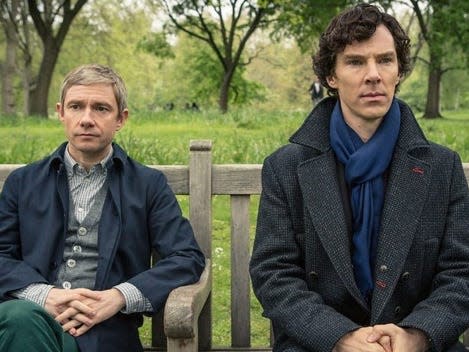
The BBC's modern-day adaptation of "Sherlock" starred Benedict Cumberbatch as the sleuth and Martin Freeman as his iconic sidekick Watson. Across four seasons and seven years, fans became deeply invested in "Johnlock," the ship between the two.
However, showrunner Steven Moffat was adamant there were never any plans to make Johnlock canon in a 2012 interview with The Guardian, saying there was no reason to think Sherlock was gay or asexual and, instead, he shuns women because he "doesn't want the distraction."
But throughout the series, many characters mistake the two for a couple, including Moriarty, Sherlock's nemesis, who called John "Sherlock's heart."
However, as reported by Screen Rant, instead of the writers addressing some of this tension, their perceived relationship was used as comedic relief.
Fans held onto the hope that "Swan Queen," aka Regina and Emma, would fall in love on "Once Upon a Time."
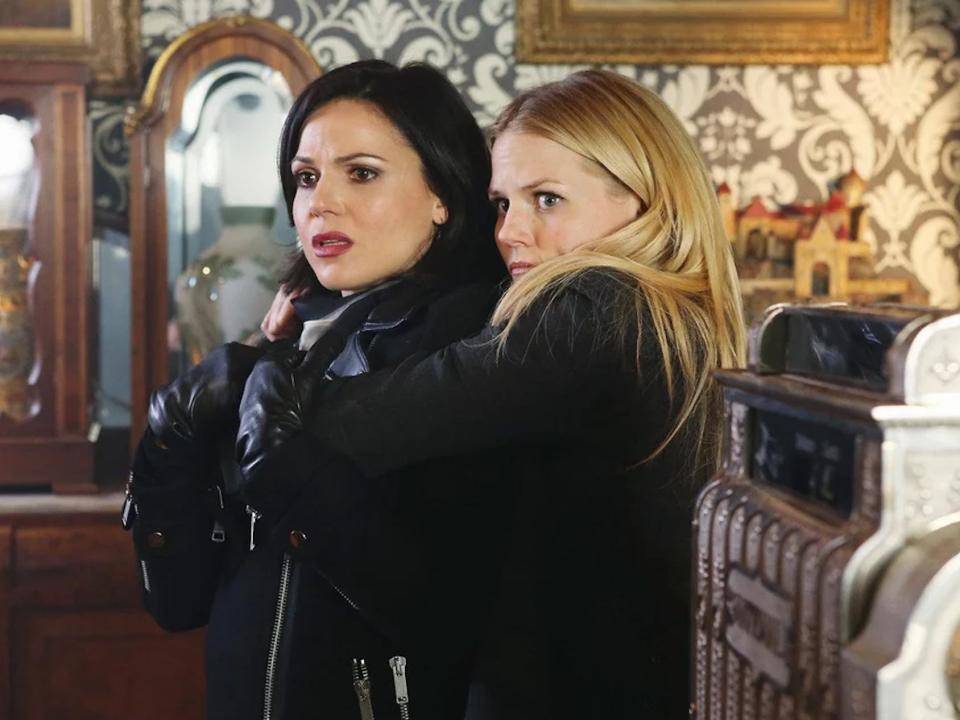
The queer subtext is easy to find in the relationship between Emma Swan (the daughter of Snow White and Prince Charming) and Regina Mills (the Evil Queen from "Snow White"): The two co-parent their son Henry together, and are usually working together to keep him safe.
However, Emma and Regina were given their own male love interests, Captain Hook and Robin Hood, respectively.
Autostraddle pointed out that, while "OUaT" is fun to watch because it's "truly laughable," the perceived queerbaiting is a "silent killer" in the show.
Eventually, showrunners Adam Horowitz and Eddy Kitsis introduced a different same-sex relationship in season five. They told TVLine, "We know that [the LGBTQ+] community has been a big supporter of the show, and we would love to be able to tell a love story that reflects that."
Troy and Abed on "Community" were truly each other's soulmates, platonically or romantically.
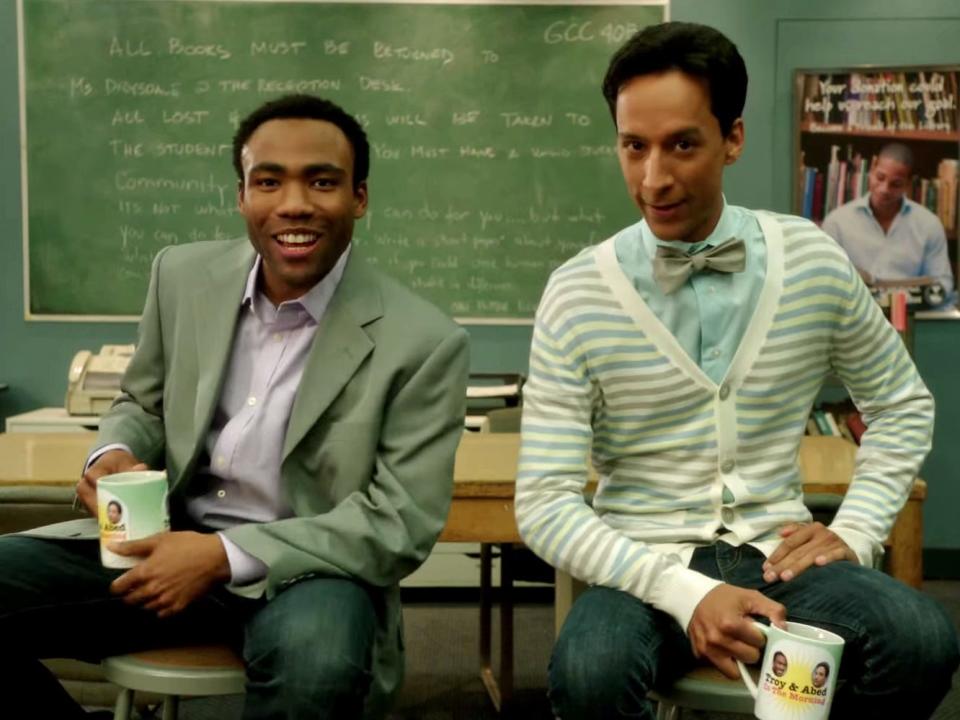
Troy and Abed are two main characters in "Community," a sitcom about a study group at a community college. The show aired for six seasons, and there's a movie on the way, Deadline reported in March.
Troy is, at first, portrayed as a stereotypical jock who peaked in high school, while Abed is a pop-culture fanatic with some type of neurodivergence (fans typically see Abed as on the autism spectrum, though it's never confirmed on the show). They don't seem to have anything in common.
Throughout the first four seasons, though, they become best friends and even move in together.
And plenty of people on the internet — like those who signed a Change.org petition to make Troy and Abed "boyfriends" in the upcoming movie — became convinced that, even if the two aren't dating each other, they are each queer-coded.
For example, there's a scene where Troy is struggling with what he wants to do with his life, and talks to Abed about it, all in front of some prominently placed rainbow flags.
Making Kara and Lena's relationship canon on "Supergirl" could've been groundbreaking.
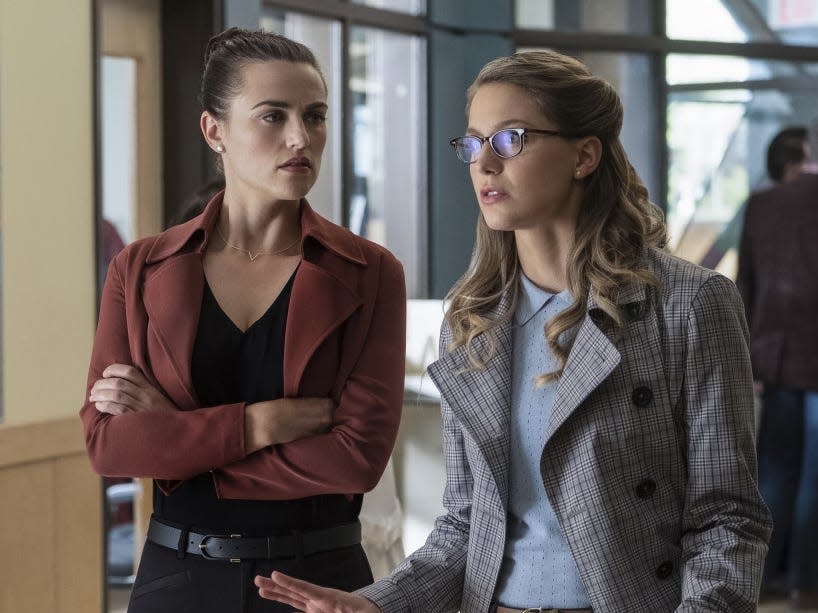
On Business Insider's 2022 list of the best non-canon LGBTQ ships, "Supercorp" — Kara and Lena from The CW series "Supergirl" — were at the top of the list.
And Supercorp shippers held on until the bitter end, as BI's Esme Mazzeo pointed out in 2021 after the show wrapped its six-season run.
"Romantically coded dialogue, longing looks, and pivotal episodes dedicated to defining how much Kara and Lena meant to each other led many Supercorp shippers — fans who wanted Lena and Kara to be together romantically — to believe that the only endpoint that made sense was a confession of love between the two," she wrote.
Fans say there is ample evidence these two were more than just gal pals, including an instance where Lana called Kara her hero and filled her office with flowers.
However, the series finale ended with Kara specifically calling Lana her friend, angering shippers.
"It is a shame that after all these years they really ended Supercorp's story with 'friends,' the same word that has been used on the show, that has been used by homophobic fans and actors since the beginning to avoid discussing the love of two women," a fan told BI.
If you watched certain scenes between Stiles and Derek on "Teen Wolf," you'd probably ship Sterek, too.
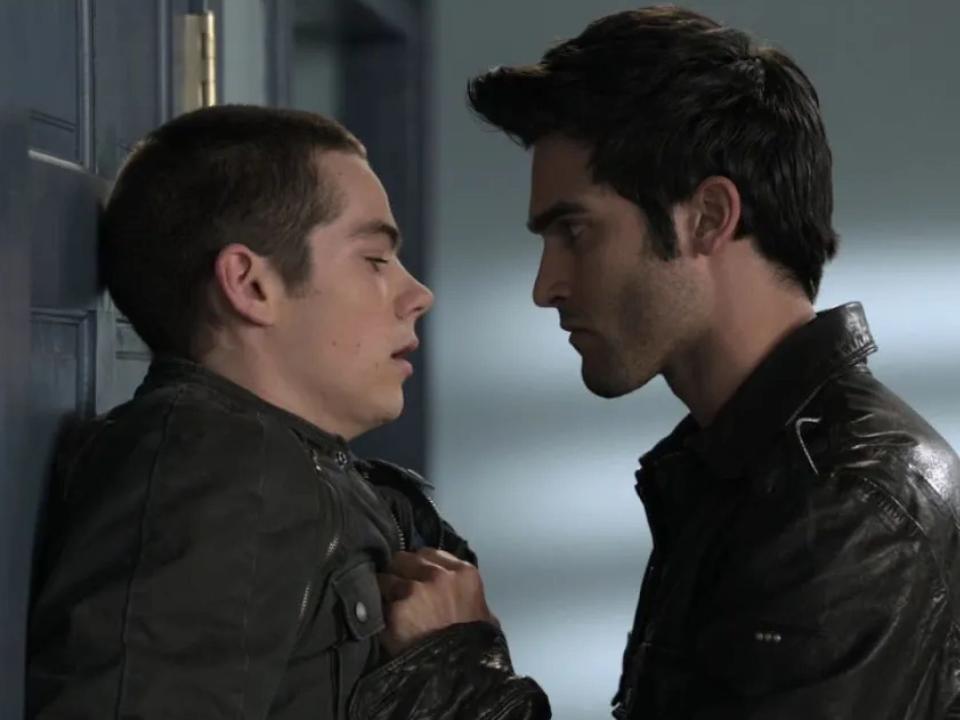
"Teen Wolf," which aired on MTV from 2011 to 2017, actually had multiple LGBTQ+ characters and ships on the show, as noted by star Tyler Posey in a 2023 interview with Attitude.
But none was as popular as the non-canon ship "Sterek," which was the relationship between Stiles and Derek.
YouTube and Tumblr are filled with explainers about Sterek, and why some fans felt Stiles, specifically, was queer-coded.
However, their relationship remained platonic, with Stiles also being involved in a fan-favorite ship, "Stydia," with the character Lydia.
Faith and Buffy on "Buffy the Vampire Slayer" have long been thought to be a little more than friends.
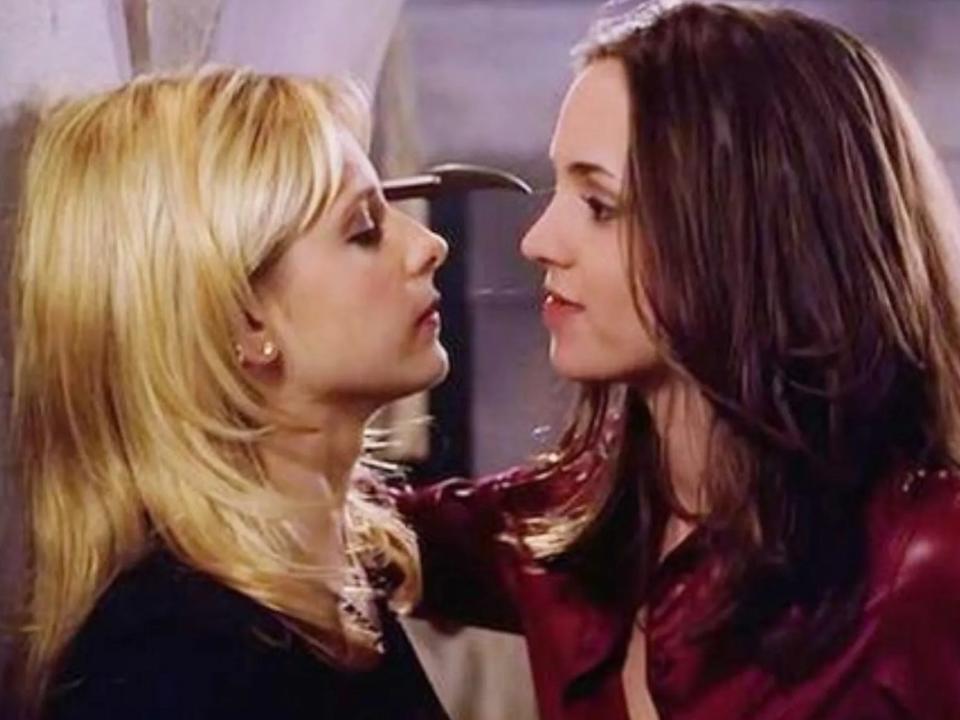
Ever since "Buffy the Vampire Slayer" began airing in 1997, the series has attracted a huge queer fan base, as Buffy's status as a vampire slayer makes her stand apart from the rest of her peers — there's even a scene when Buffy "comes out" to her mom as a slayer, where the dialogue mirrors what many people have experienced when coming out as part of the LGBTQ+ community.
However, Buffy herself was only ever canonically in heterosexual relationships on the show. But some fans were convinced her relationship with Faith, another slayer, was more than platonic.
From the beginning, the two were deeply connected, as they were the only two slayers in the world. They learned and grew from each other — and it was tragic when Faith went down the wrong path.
"'Buffy' aficionados and fan-fiction writers would have described Fuffy as a canonical sexual relationship," wrote Sophie Wilkinson for Vice.
If you're still not convinced, this YouTube video called "Buffy and Faith Being Extremely Heterosexual Gal Pals" might change your mind.
"Rizzoli & Isles" aired on TNT from 2010 to 2016 and focused on "best friends" Jane Rizzoli, a detective, and Maura Isles, a medical examiner.
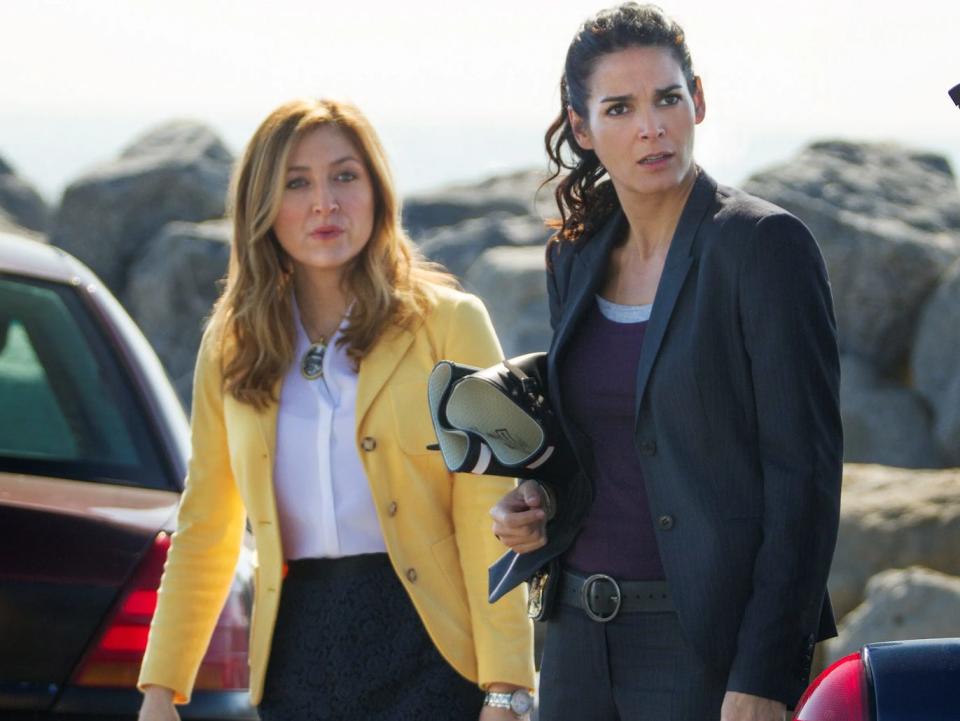
Even though Rizzoli and Isles were never shown to be anything more than best friends, the show played up the potential for more.
As the Los Angeles Times reported in 2011, there's a season one episode entitled "I Kissed a Girl," in which the two characters "played on a softball team, shared some intimate dinners, drank wine over candlelight and hopped into the same bed for girl talk." The show's creator, Janet Tamaro, even described them as a "power couple."
But one of the show's stars, Angie Harmon, made it clear: "I hate to disappoint, but these characters are straight. If we lose viewers because of it — sorry!"
The Washington Post had a similar read, writing that the show had "faintly lesbian undertones."
Despite all this, Rizzoli and Isles never become more than friends — though the series finale does end with the two taking an extended vacation to France together.
Betty and Veronica kiss in the series premiere of "Riverdale," and then it's never mentioned again.
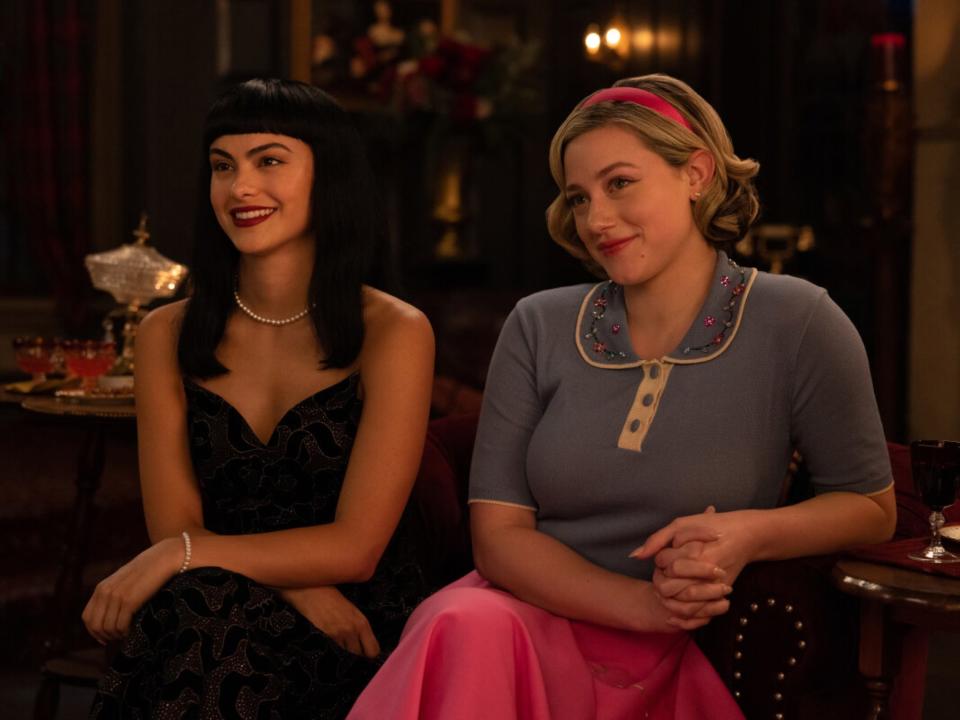
"Riverdale" started as a dark turn on the classic "Archie" comics and ended as a supernatural, time-traveling, multiversal story.
In the show's 2017 pilot, edgy newcomer Veronica kisses the straitlaced Betty during cheerleading tryouts, for seemingly no reason. It would've been one thing if this resulted in a storyline where either was forced to confront their sexuality, but it didn't — at least, not until the final season six years later.
Even then, Betty and Veronica share two more kisses, but both are in fantasy sequences. It's finally made canon that Betty, Veronica, Jughead, and Archie are in some sort of polyamorous relationship in the series finale, but it all takes place off-screen.
To "Riverdale's" credit, the show was self-aware about its queerbaiting tendencies. During a season six episode, Veronica suggests that kissing Cheryl could be the key to saving their universe — it makes sense in the show — and Cheryl says their kiss would be queerbaiting. Veronica replies, "That's not queerbaiting, it's saving the world."
Read the original article on Business Insider


